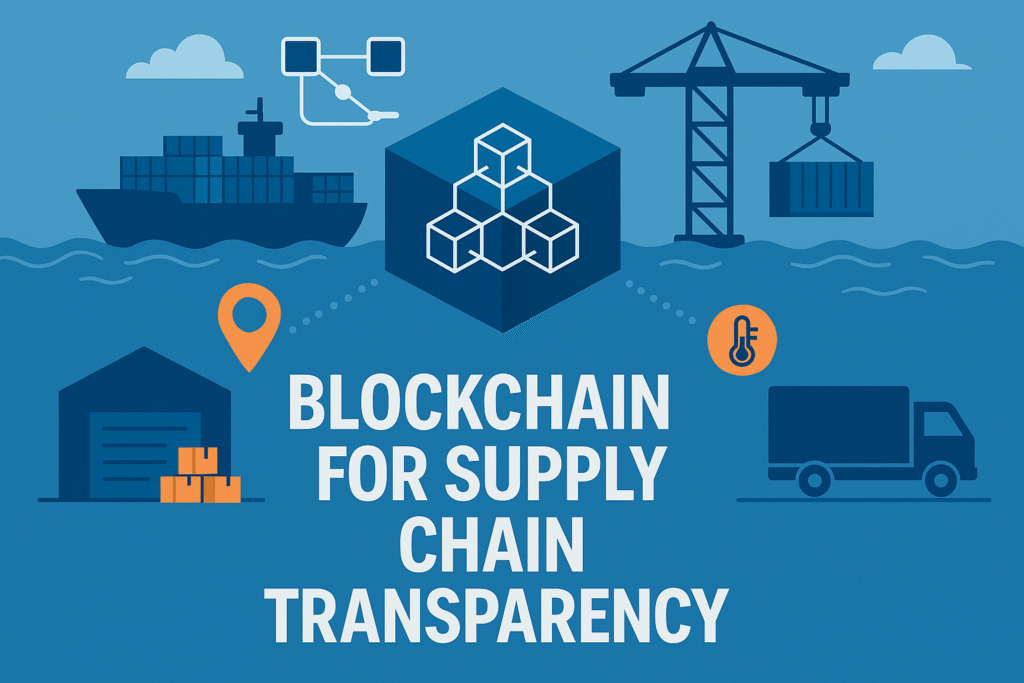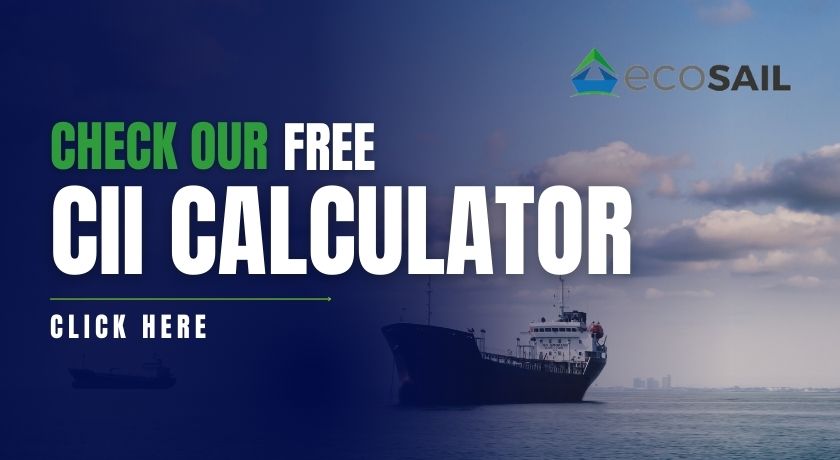Blockchain for Supply Chain Transparency: A New Era in Shipping Efficiency

Blockchain for Supply Chain Transparency: A New Era in Shipping Efficiency
As the urgency to combat climate change grows, the global shipping industry faces increasing pressure to reduce its significant carbon footprint. Responsible for about 2.5% of global CO₂ emissions, shipping must pivot toward sustainable alternatives to fossil fuels to meet international climate targets. Hydrogen and ammonia have emerged as two of the most promising zero-emission fuels, capable of powering ships without emitting CO₂. These innovative fuels hold the potential to reshape the maritime industry, offering a cleaner and more sustainable path forward.
The Shipping Industry’s Transparency Challenge
Featured News

Plugged In but Priced Out? UK Shore Power Faces a Commercial Reality Check

Moscow vs Tehran: Discount Battle Intensifies as China Becomes the Main Prize

Panama Cancels Canal Port Concessions, Hands Temporary Control to Maersk and MSC

China’s Autonomous Feeder Nails First Fully Automated Berthing

The shipping industry has long grappled with inefficiencies stemming from manual processes, fragmented data systems, and opaque operations. Traditional supply chains often rely on paper-based documentation, such as bills of lading and customs forms, which are susceptible to errors, delays, and fraud. These challenges not only increase operational costs but also hinder the ability to trace products accurately from origin to destination.
Blockchain technology addresses these issues by providing a decentralized ledger that records every transaction in a supply chain. This ledger is immutable, meaning once data is recorded, it cannot be altered without consensus from all network participants. Such a system ensures that all stakeholders—from manufacturers and suppliers to freight forwarders and customers—have access to a single, trustworthy source of information, enhancing transparency and reducing the risk of fraud.
Core Technologies Powering Blockchain in Shipping
Smart Contracts
Smart contracts are self-executing contracts with the terms of the agreement directly written into code. In the shipping industry, they automate processes such as payment settlements, compliance checks, and cargo releases. For instance, a smart contract can automatically release payment to a supplier once a shipment reaches its destination and is verified by IoT sensors, eliminating the need for manual intervention and reducing the potential for disputes.
Decentralized Ledgers
Blockchain’s decentralized ledger ensures that all participants in the supply chain have real-time access to the same data. Each transaction is recorded in a block, and these blocks are linked chronologically, forming an immutable chain. This structure not only enhances data integrity but also facilitates faster and more reliable documentation processes, reducing the chances of data manipulation or fraud.
Integration with IoT
Combining blockchain with Internet of Things (IoT) technology enables real-time tracking of cargo. IoT devices, such as GPS trackers and environmental sensors, can monitor the location and condition of shipments, with this data being recorded on the blockchain. This integration ensures the traceability of goods throughout the supply chain and provides critical data for decision-making. For example, blockchain can track the temperature of perishable goods or the handling conditions of sensitive items, reducing the risk of damage and improving accountability.

Sustainability and Environmental Impact
Blockchain technology contributes to sustainability in several ways. By digitizing documentation processes, it reduces the reliance on paper, thereby decreasing administrative costs and the environmental impact associated with paper production and disposal. Moreover, blockchain streamlines the flow of goods, improving overall supply chain efficiency. Faster, more reliable tracking and verification mean fewer delays, less idle time for ships and trucks, and reduced fuel consumption. By optimizing routes and preventing unnecessary stops or detours, blockchain can further contribute to reducing the carbon footprint of logistics operations.
Additionally, blockchain plays a crucial role in promoting ethical and sustainable sourcing. By providing an immutable record of where and how goods are produced, blockchain allows companies to verify that their suppliers adhere to environmental and labor standards, ensuring responsible sourcing practices. This level of transparency is invaluable for ensuring the integrity of shipments and maintaining customer confidence.
Real-World Applications and Case Studies
Several companies have begun implementing blockchain solutions to enhance supply chain transparency. For instance, OpenSC, a platform developed by WWF Australia and BCG Digital Ventures, uses blockchain to track individual products throughout their supply chain. Consumers can scan a QR code to view the product’s history, verifying sustainable production claims. This approach has been adopted by companies like Nestlé to trace the origin of their products and ensure ethical sourcing practices.
Another example is the use of blockchain in tracking seafood. A pilot project followed a tuna from Fiji to Brooklyn, recording every stage of its journey on the Ethereum blockchain. This initiative demonstrated the potential of blockchain to provide a transparent, secure, and detailed account of a product’s path from origin to consumer, enhancing trust and accountability in the supply chain.
Challenges and Future Outlook
While blockchain offers significant benefits, its adoption in the shipping industry faces challenges. These include the need for standardization across different systems, the integration of blockchain with existing infrastructure, and concerns about data privacy and security. Moreover, the initial investment required for implementing blockchain solutions can be substantial, which may deter smaller companies from adoption.
Despite these challenges, the future of blockchain in supply chain management looks promising. As technology advances and more companies recognize the benefits of enhanced transparency and efficiency, blockchain is likely to become an integral part of the shipping industry’s digital transformation. Collaborative efforts among stakeholders, including governments, industry bodies, and technology providers, will be crucial in developing standardized frameworks and promoting widespread adoption.
Conclusion
Blockchain technology is set to revolutionize supply chain transparency in the shipping industry by offering secure, transparent, and efficient solutions. With smart contracts automating processes, decentralized ledgers ensuring data integrity, and IoT integration providing real-time tracking, blockchain is transforming the way goods are managed and transported. Its impact on sustainability, from reducing paperwork to enhancing the traceability of goods, makes it a critical tool for the future of global trade. As the industry continues to evolve, embracing blockchain technology will be essential for companies aiming to improve efficiency, ensure ethical practices, and meet the growing demands of environmentally conscious consumers.

